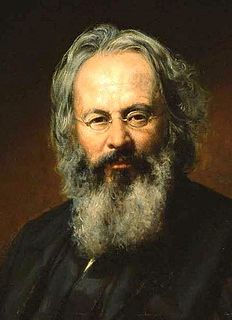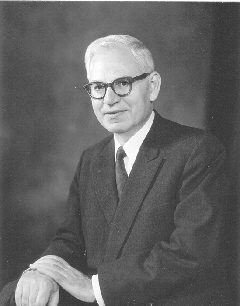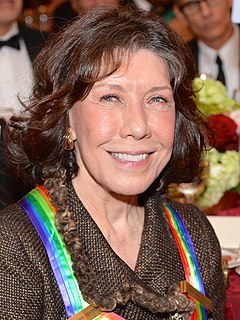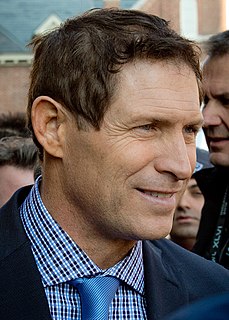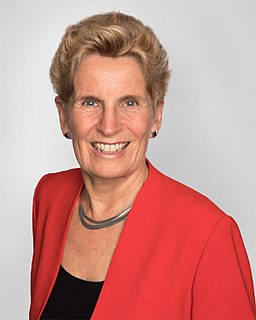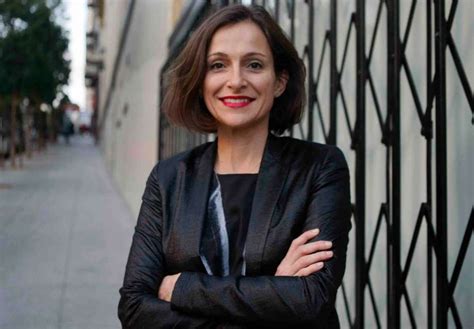A Quote by Michael Portillo
Wagner had a terrific understanding of politics. In 1829, he was a Marxist revolutionary who wanted to bring down the establishment. He hated religion and churches, which he said enslaved people. But he later developed different views that put art at the centre of the life of the state.
Related Quotes
The great object was to get rid of Christianity, and to convert our churches into halls of science. The plan was not to make open attacks on religion, although we might the clergy and bring them into contempt where we could: but to establish a system of state - we said national - schools, from which all religion was to be excluded.
The state which is regarded as the instrument for universalizing a certain religion must perforce be an ever expanding state. The Islamic state, whose principal function was to put God’s law into practice, sought to establish Islam as the dominant reigning ideology over the entire world….The jihad was therefore employed as an instrument for both the universalization of religion and the establishment of an imperial world state.
I work in the field of art, and you know how during a period of Marxist ideology, fewer people are inclined to believe in the power of the culture as a whole: they believe in the revolutionary potential of economics, class struggle theory.. ..Therefore it's time to show that art means the power of creativity, and it's time to define art in a larger way, to include science and religion too..(1973
Revolutionary politics, revolutionary art, and oh, the revolutionary mind, is the dullest thing on earth. When we open a revolutionary review, or read a revolutionary speech, we yawn our heads off. It is true, there is nothing else. Everything is correctly, monotonously, dishearteningly revolutionary. What a stupid word! What a stale fuss!
If a state political organization is founded in part upon a state religion with a dogma based on one or a few 'official' prophets, then shamanism, where every shaman is her or his own prophet, is dangerous to the state. [...] Shamanism, as I said, is not a religion. The spiritual experience usually becomes a religion after politics has entered into it.
(...) contemporary art has become a kind of alternative religion for atheists. (...) For many art world insiders and art aficionados of other kinds, concept-driven art is a kind of existencial channel through which they bring meaning to their lives. It demands leaps of faith, but it rewards the believer with a sense of consequence. Moreover, just as churches and other ritualistic meeting places serve a social function, so art events generate a sense of community around shared interests
Those people that created the cultural Marxist thoughts, one guy by the name of Antonio Gramsci, very important within the Frankfurt School, argued against the concept of Marxist Leninism, in which it was basically the revolutionary spirit where someone would say we need to rile up the lower classes and have a revolution and take over the factories.
The ultimate aim of politics is not politics, but the activities which can be practised within the political framework of the State. Therefore an effective statement of these activities - e.g. science, art, religion - is in itself a declaration of ultimate aims around which the political means will crystallise... a society with no values outside of politics is a machine carrying its human cargo, with no purpose in its institutions reflecting their care, eternal aspirations, loneliness, need for love.
The religion of art, like the religion of politics, was born from the ruins of Christianity. Art inherited from the old religion the power of consecrating things and endowing them with a sort of eternity; museums are our temples, and the objects displayed in them are beyond history. Politics--or more precisely, Revolution--co-opted the other function of religion: changing human beings and society. Art was an asceticism, a spiritual heroism; Revolution was the construction of a universal church.
To the other nations of the world, religion is one among the many occupations of life. There is politics, there are the enjoyments of social life, there is all that wealth can buy or power can bring, there is all that the senses can enjoy; and among all these various occupations of life and all this searching after something which can give yet a little more whetting to the cloyed senses - among all these, there is perhaps a little bit of religion. But here, in India, religion is the one and the only occupation of life.

